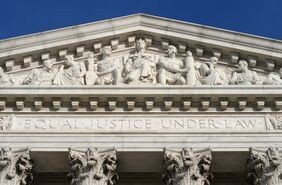Not Better Late Than Never: Timing Requirement is Material to Payment
Client Alert | 1 min read | 06.15.18
On June 11, 2018, in U.S. ex rel Prather v. Brookdale Senior Living Communities Inc., the Sixth Circuit reversed dismissal of a False Claims Act suit against the country’s largest senior living provider because the relator had sufficiently alleged materiality. The qui tam suit was brought by a former nurse who alleged that physician certifications of patient need for home-health care were not signed until months after the care had been provided, in violation of 42 C.F.R. § 424.22 which requires that such certifications be completed at the time a plan of care is established or “as soon thereafter as possible.”
Applying the factors that the Supreme Court identified in its Escobar decision, the Sixth Circuit held in a 2-1 decision that the relator sufficiently pleaded that the timing requirement in § 424.22 was material by alleging that it was an express condition of payment and referring to guidance documents suggesting that compliance with the timing requirement went to the “essence of the bargain” between the defendants and the government. Notably, the lower court had drawn a negative inference on materiality because the complaint contained no allegations about the government’s past practice vis-à-vis claims that did not comply with the timing requirement in § 424.22. The Sixth Circuit found that this was “one step too far” because although past government actions are relevant to the materiality analysis, they are not dispositive.
Contacts
Insights
Client Alert | 9 min read | 01.06.26
Beyond the Checkout: Retail's 2026 Legal Minefield
2026 will be a significant year for retailers and e-commerce companies, with significant changes on the horizon that will affect the entire industry and ecosystem. Potential headwinds and developments in product safety, pricing, artificial intelligence, data privacy, website compliance, and environmental responsibility are expected. But amidst these changes, there are likely significant opportunities that retail and e-commerce businesses can capitalize on.
Client Alert | 6 min read | 01.06.26
California Privacy Agency Launches Data Broker Strike Force Amid Delete Act Crackdown
Client Alert | 4 min read | 01.05.26
Another Court Rules CASA Does Not Limit Universal Relief Available Under the APA
Client Alert | 7 min read | 01.05.26
Consideration of Artificial Intelligence in Arbitration Terms of Reference





